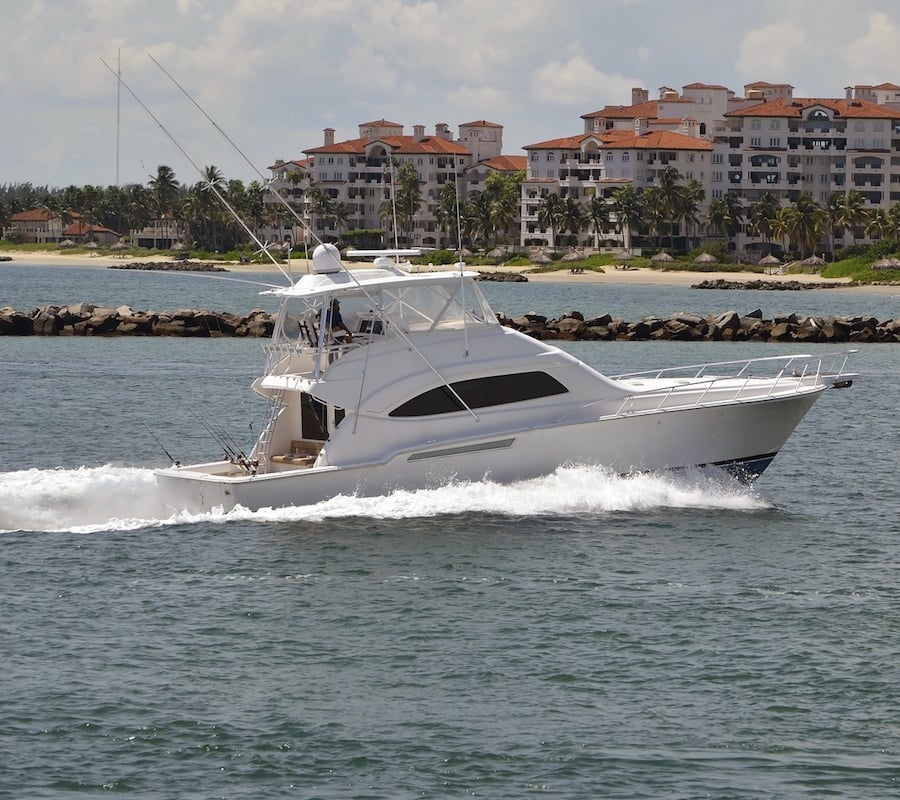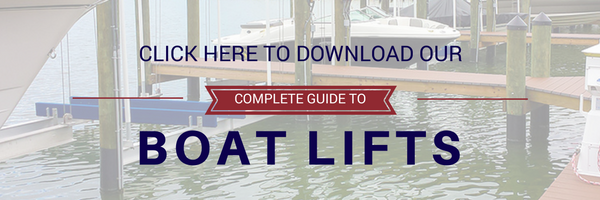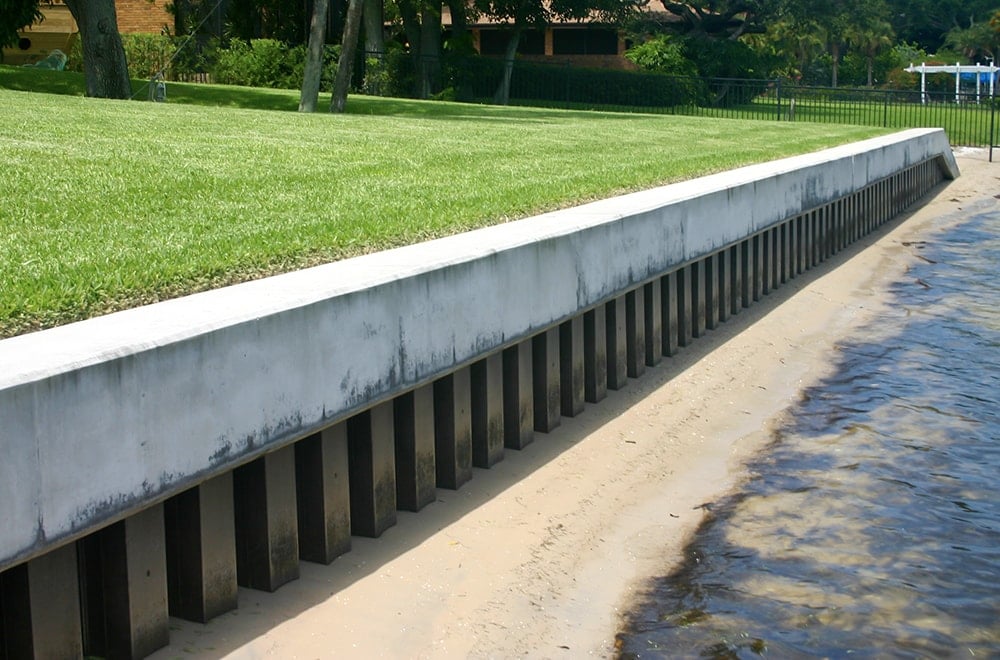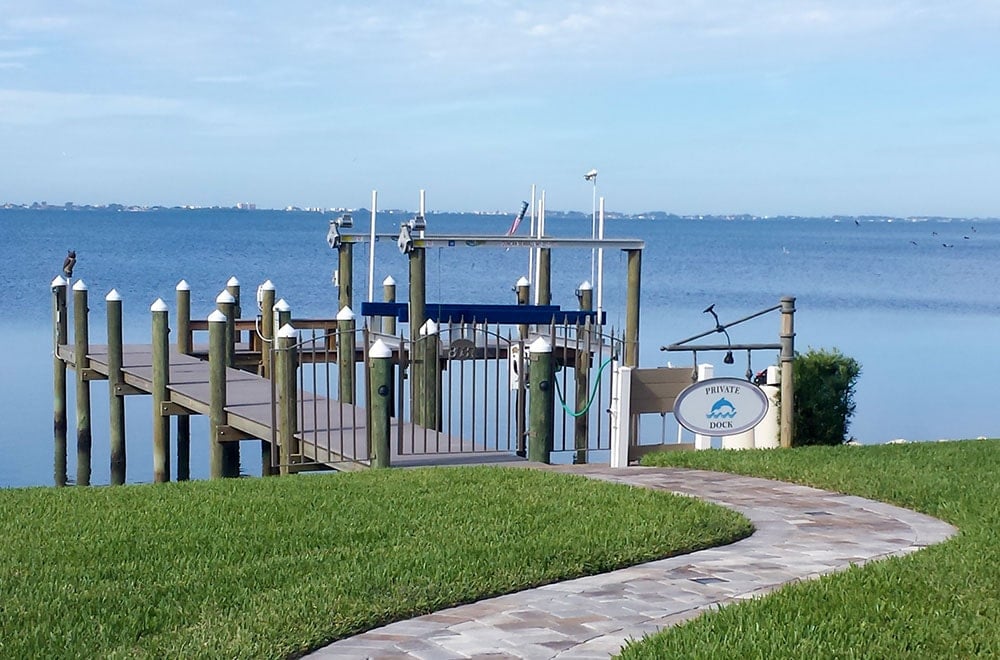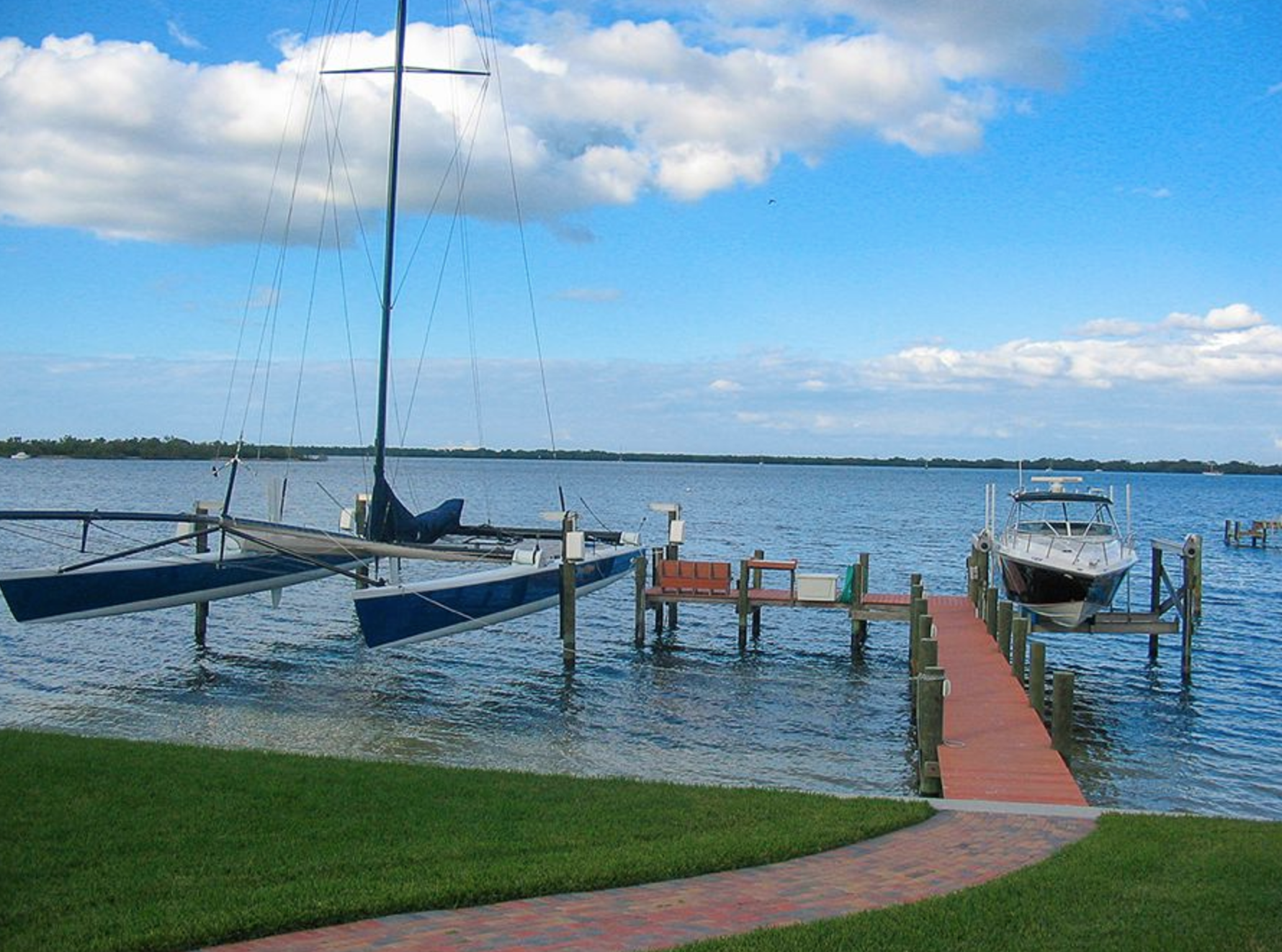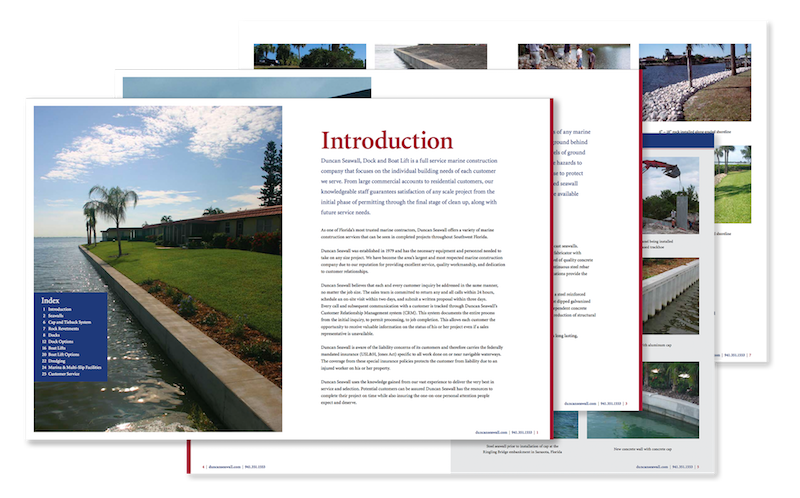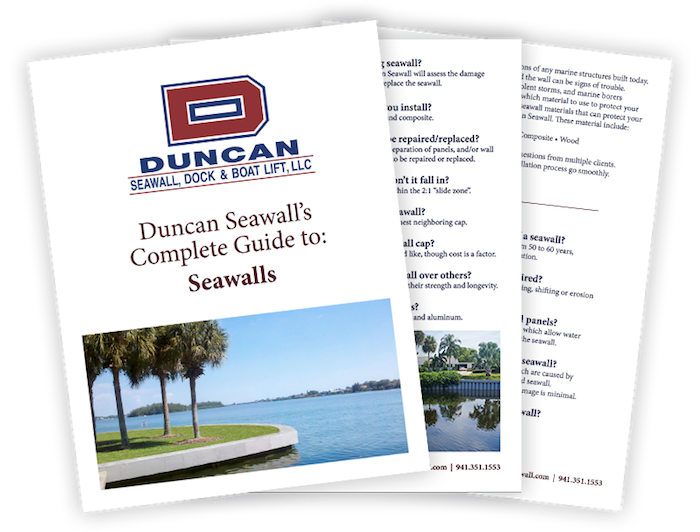Boating is a favorite pastime in Southwest Florida. There are many different boating activities available, including such favorites as: Fishing, Water Skiing, Swimming, Spotting Dolphins and Manatees. But owning and using a boat comes with certain responsibilities.
At Duncan Seawall Dock and Boat Lift, we want you to enjoy your boating experiences, so we put together some important tips to help get you where you want to go, boat safety, and to maintain your boat for years to come.
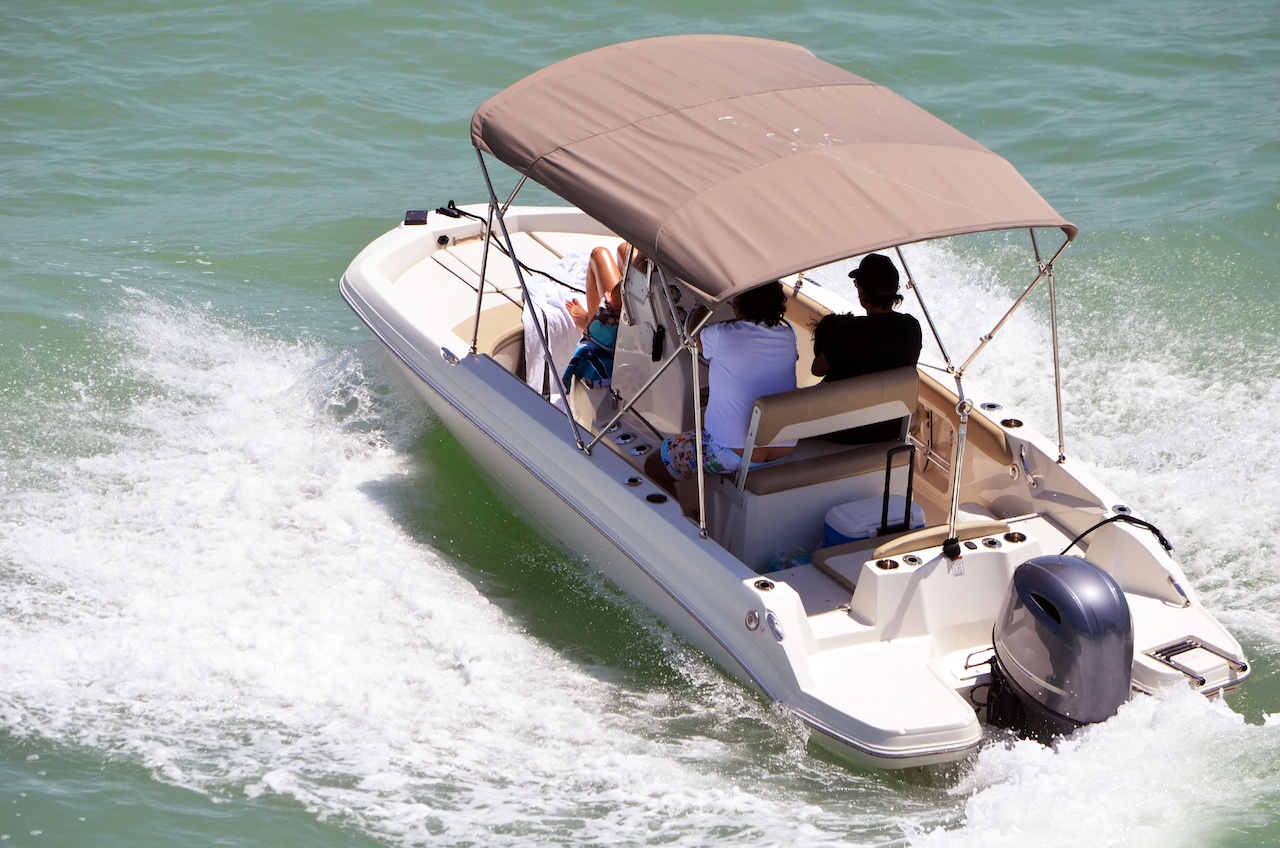
Related Blog: Boating Tips: Best Ways to Secure Your Boat to Your Dock
1. Have the Proper Safety Equipment
The three things that you must have when boating offshore in Venice, FL are a marine radio, navigation lights, and life preservers. The marine radio will allow you to monitor storms, and is required on Florida waterways. Navigation lights are required by law and should be used in fog or at night in order to alert other craft to your presence.
The Coast Guard requires you to have one approved life preserver or floatation device for every person on the boat. Emergency locator beacons are not required equipment, but they are a very good idea.
2. Fog May Be Misleading
If you become lost in a fog, keep in mind that the distance to objects can be deceiving. Depending on other conditions, objects may either be closer or farther away. In a nighttime fog, things will seem to be farther away, leading to a risk of running aground or a collision. In daytime fogs, the opposite is often true. Turn on your boat’s navigation lights and proceed slowly. Centering a line towing a floating object allows you to monitor how straight you are going, as the floating device will pull to the opposite side of the craft when turning.
3. Water Depth by Color
Water color is an important tool for deciphering water depth. The 4 important colors to be aware of are:
Brown—Brown water often indicates a shoal or coral reef. The depth of the water may range from deep to extremely shallow in a very short distance. Avoid this water color whenever possible.
White—While Florida is famous for its beaches, keep in mind that white is the color of sand and bleached coral. Avoid boating onto an area of white as it could cause you to run aground or damage motors and hulls.
Green—Green water is safe for most small craft. For large boats that sit lower in the water, green water indicates that you should use caution.
Blue—Blue water is the safest water color. It indicates deep water that is free of shoals or potential coral.
4. How to Get Ungrounded
Kedging is the practice of using your anchor to become ungrounded. First, stop your motors (or lower the sails) as soon as your boat touches bottom. Forward propulsion can force your boat into shallower water very quickly. Next, using a skiff, or wading in shallower waters, take your anchor to deeper water. If the tide is rising, wait on more depth. If the tide is going out or at low ebb, tow in the anchor line slowly. This trick can haul the boat off a sandbar and back into safe boating waters. If possible, you can assist the kedging effort by applying light propulsion towards the deeper water.
5. Marine Navigation Markers
Marine navigation markers have several rules, but two important ones will keep you out of danger. A red marker or buoy should be on your right if you are traveling toward open water, and a green marker or buoy should be on your right if you moving away from open water. This will prevent you from running aground, colliding with underwater objects, or endangering yourself and others. The Coast Guard provides a free guide for further navigation assistance.
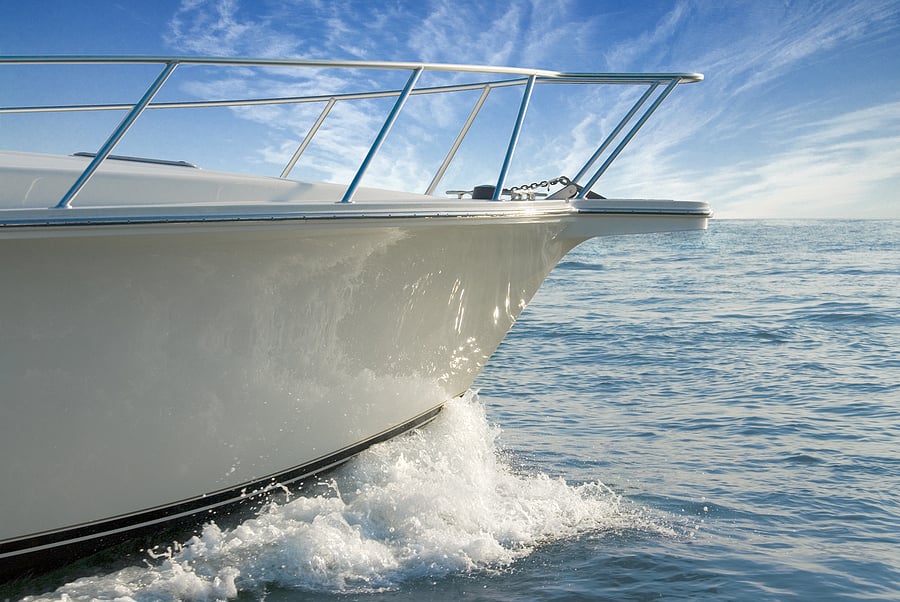
6. When to Change Oil
A common mistake of many boat owners is to delay changing the oil at the end of the boating season. This is actually quite harmful to your engines, as it allows contaminants in the oil to settle while the boat is in storage. Instead, change the oil at the end of every boating season. Another benefit of doing this is that when it comes time to take the boat out again, it will be ready to “get in and go.”
7. Protecting with Kitty Litter
If your boat has a cabin, engine compartment, or other enclosed area, keep an open tub of kitty litter in the area. This will absorb moisture in the air and prevent rust, mildew, and mold. You may also want to place some in the open passenger area when you store the craft in a building or under a tarp. In Venice, FL, the humidity can be extremely high, and using kitty litter may be beneficial year-round.
Boating in Venice, Florida requires the right equipment. If you have any questions about docks or boat lifts for your boat, contact us today to speak with a marine construction expert.



